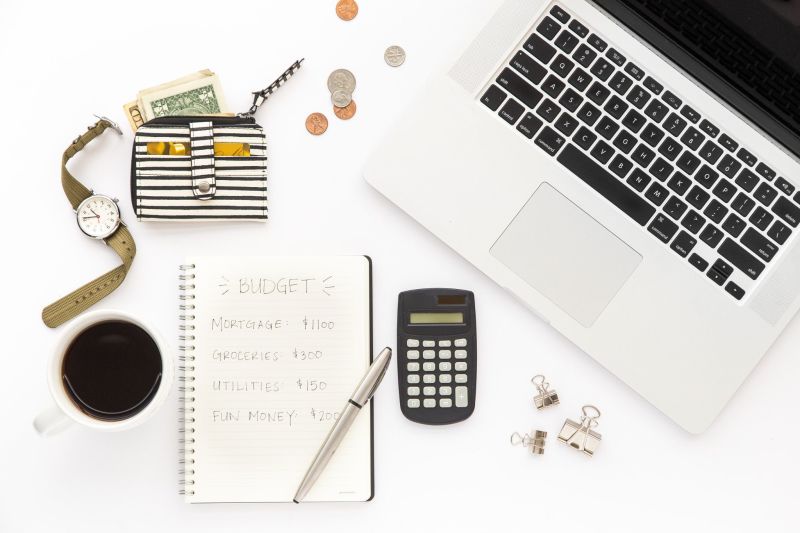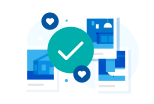5 Ways Your Tax Refund Can Help You Buy a Home

Getting ready to purchase a home in 2024? We’re sharing five ways you can use your tax refund to help you when you’re buying your first home.
According to the IRS, the average tax refund in 2023 was $2,753, and they issued almost 86 million refunds. So, if you’re expecting to receive some money this tax season and are making plans for what you’re going to do with it, you’re definitely not alone!
While many people put their refund toward things like debts or loans, large purchases or other specific financial goals they may have, some are also interested in ways they can use that money when they’re buying a home. Homeownership is a big investment in your financial future, so let’s take a look at some ways your tax refund can help you be prepared for everything that’s involved in the home buying process.
1. Put it Toward a Down Payment
One great option is to put your tax refund into a bank account to help you save up for the down payment on your new home. Whether you’re close to your goal or just getting started, this can help give you a boost as you continue to get your finances ready for homeownership. Plus, the larger the deposit amount you put toward a new home, the less you will typically have to borrow and pay in interest over time.
2. Apply it to Closing Costs
Aside from your down payment, you’ll also want to make sure you’re prepared for closing costs. These are the different fees you will usually pay when you sign the loan documents to close on your home. Depending on your specific situation, some common costs can include:
- Attorney fees for the loan closing
- Home appraisal and inspection fees
- Title search and insurance fees
- Escrow costs
Depending on the lender you’ve chosen, some of these costs may be able to be incorporated into your loan amount, so you’ll want to speak to your loan originator to make sure you understand everything that you’ll be responsible for when you close on your home.

3. Put it Toward Property Taxes and Insurance
After you’ve purchased your home, you’ll also need to pay your property taxes and home insurance costs, which is another area where your tax refund can come into play. If your new manufactured home will be on land you own, your chosen lender will likely offer or require an escrow for the property taxes. That means you’ll pay a portion of the property taxes each month into a mortgage escrow account, and your lender will pay the property taxes from that escrow account when the taxes due. If you’ll be renting land in a manufactured home community, the responsibility for the property taxes will depend on the state and county you’re located in.
Most mortgage lenders will also require you to have home insurance and prove that your policy is active, but you’ll want to research your available options to make sure you choose the policies and coverage that are the right fit for your specific needs.
And if both your property taxes and home insurance are included in your monthly mortgage payment, you could also consider using your tax refund to purchase additional insurance or save it to be put toward future payments.

4. Use it to Cover Moving Costs
The costs associated with moving can definitely start to add up! And your tax refund can help you cover some of them, like:
- Paying a moving company
- Renting a moving truck
- Purchasing boxes and other packing materials
- Paying the service deposits for your utilities
Or, you can also plan to put some of that money toward items you may need once you move into your new home, like a couch that will fit perfectly in your living room, a larger bed, washer and dryer, or even some new decor pieces to really help you personalize your space. You may also want to put it toward landscaping services, especially if you haven’t had a yard of your own before.
5. Use it to Build Your Emergency Fund
Every homeowner should have an emergency fund, although the exact amount you will want to save will depend on factors like your income, general budget and other financial goals you may have in mind. You could add your tax refund to your emergency fund to help in the event of any unexpected expenses, such as a major car repair, or in the event of a job loss.
Buying and owning a home can also come with a variety of tax benefits, so we always recommend you consult and work with a tax professional to make sure you understand all of the requirements and opportunities that are available to you.
We hope this list sparks some great ideas as you prepare to take the next step on your journey to homeownership. And if you’re ready to learn more about different loan types, budgeting tips and more, you can head over to the Home Investment section of our Studio blog to check it all out.
Are you ready to find your dream home?
Start shopping now or find a home center in your area to learn more about Clayton Built® home options.By entering your email address, you agree to receive marketing emails from Clayton. Unsubscribe anytime.
© 1998-2025 Clayton.

